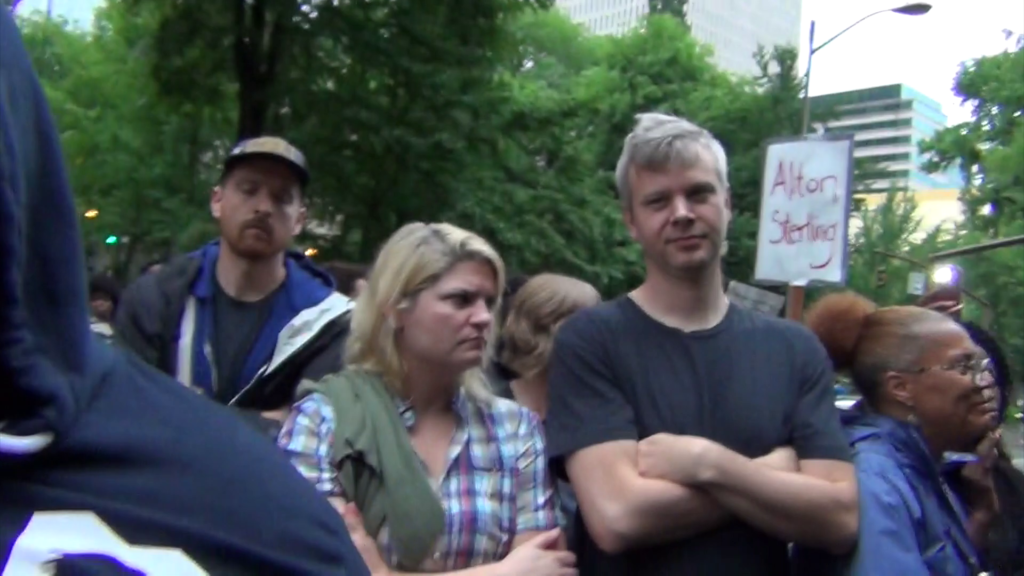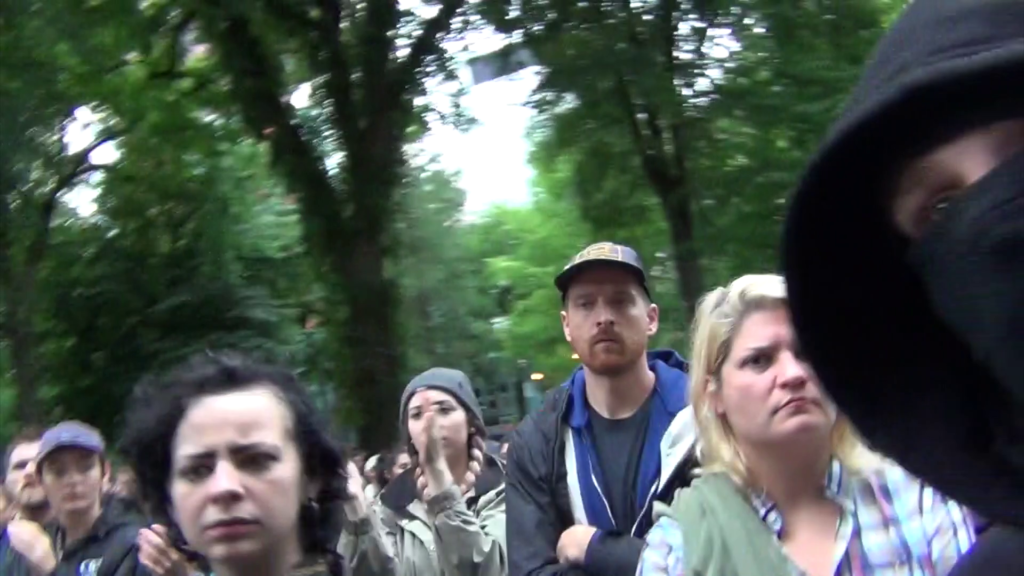It wasn’t until about a month later that we finally received copies of the evidence, referred to as “discovery” in legal terms. This included all of the police reports associated with the event, phone call interviews detectives conducted with witnesses, emails that were sent in from other witnesses, and, most importantly, several video angles. This included my first-person video, which I had been barred from even viewing until now, as police had confiscated on the night of the incident.
Except there was a catch to all of this. Prior to receiving the discovery, deputy district attorney Todd Jackson motioned for the judge to issue a protective order on all of this, effectively sealing the evidence. There was a hearing held on this, and Chris Trotter appeared to supposedly argue against this order. Despite Jackson’s vague and ambiguous arguments in favor of the order, with zero evidence that anyone would be at any risk with the release of discovery, Trotter was not able to stop the order from taking effect.
This meant that I couldn’t even legally view the evidence unless it was at the attorney’s office in the presence of the attorneys. I couldn’t take home copies of anything, I couldn’t post the videos of the initial attack by the mob (of which my first-person video is the only angle), I couldn’t even talk to anyone about what was contained in the evidence.
Here is the audio from that hearing, which had also been part of the protective order, which wasn’t lifted until four months after the trial. Chris Trotter never tried to make any argument that other video angles that were taken by others and already made public were being used to prejudice me, as the media were only showing the few seconds I had the gun out, and didn’t have any video of the initial altercation.
Listen to this and tell me if you think Chris Trotter sounds the least bit confident in anything he’s talking about.
Note the part near the end where the judge says that we can petition the judge for a narrower version of the order that would have allowed me more leeway in reviewing the evidence in my own case.
Chris Trotter, as you can guess, made zero effort after this hearing to alter the order.
During this time there was a bit of a lull for several months while the gears slowly churned. Chris Trotter had ditched out on at least two meetings we were supposed to have during this time, the first of which was to go over the evidence. During my limited opportunities to review the evidence, I made several screen captures of key moments in the videos (remember this, it comes into play later on), made several notes, listened to all of the detective interviews, and I made notes with timestamps pointing out things that were factually inaccurate or statements that contradicted other things the witnesses said.
I had a sneaking suspicion there were more video angles than what we had initially received. I took it upon myself to go back to the scene of the incident and scout around for possible security cameras. I found several in the area, and told Trotter about this. We were able to get only two additional videos that deputy DA’s Kate Molina and Todd Jackson had initially withheld, despite there being many more security cameras in the area.
Did Chris Trotter push the issue to get more angles? No, of course not, he just rolled over as usual.
Speaking of videos, there were several witnesses seen in my first-person video who were never identified. Even though Trotter and Short had a private investigator firm they often worked with, they made no attempt to identify these witnesses. These people could have rebutted several of the things the state’s “star” witness said that were untrue when he testified on the stand.


During this time I was still legally banned from working the job I had held for 2 years, and Chris Trotter never once tried to get this ban lifted.
At some point during this time period, Chris Trotter recommended that I apply for a thing called the Multnomah County Justice Reinvestment Program (MCJRP). It’s some kind of program that reduces penalties if someone’s found guilty if they show they are amenable to various kinds of alternative sentences and self help programs and whatnot.
So we arranged for me to be examined by one of their intake people. I went downtown for the interview, which took about 2 or 3 hours if I recall. Afterward, as I was walking out, a protest was taking place up the block.
Remember, I was legally barred from attending political events during that time. I was forced to walk near it and hope that no one recognized me or that my mere presence near it didn’t constitute any sort of violation.
A few weeks later I was told by Christopher Trotter that I was actually ineligible for the MCJRP program because I didn’t live in Multnomah County.
I wasted all that time over a non issue and I was put in jeopardy, thanks to Trotter’s failure to do his due diligence.
In October of 2016, the state appeals court issued a ruling in another case that stated a defendant had the right to review online logs, cell phone messages, emails, and other messages of the alleged victims. I felt this was very relevant to my case because it appeared to me that there were several individuals that conspired to initiate this physical altercation with me, some of which were listed as witnesses in the case.
I sent Trotter an email about this as soon as I saw the news story about this new ruling, telling him that I think we should motion for similar information to prove this altercation was premeditated by several people, including at least one that is claiming “victim” status and another that was a witness who outright admitted to the detectives that he helped to organize the gang to “forcibly remove” me from the area.
Trotter ignored this and several other emails I had sent out during this time period of several months. As I would come across things that were related to the case, new information, or new things that I thought we could use in my favor, I would email Trotter.
Very rarely did I hear back from him.
So much so that I was starting to figure Trotter and Short were no longer representing me, so I started calling around to other attorneys. However the attorneys I spoke with said Trotter and Short were good attorneys and recommended that I just stick with them. Having never experienced any of this prior, I went with those recommendations.
Come January of 2017, just a few weeks before the trial was scheduled to start, Trotter finally responded to my emails about possibly gathering the emails and chat records from the “victims” to help prove they premeditated this attack. Trotter told me that it would be too expensive and there wasn’t enough time left to do it before the trial.
That’s why I emailed him October as soon as I found out about this. That would have given us three additional months to figure this out.
Did Chris Trotter care? Nope, of course not. If you want to hire an attorney who won’t even do basic due diligence, skip out on meetings, and ignore your emails, then hire Chris Trotter.